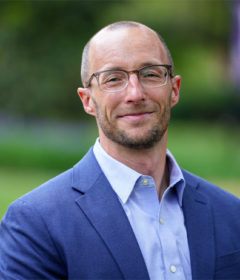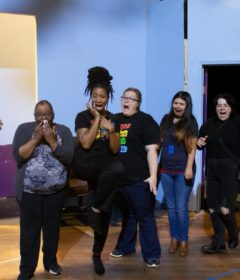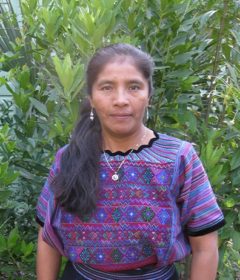Stetson Professor Wins National Faculty Mentor Award
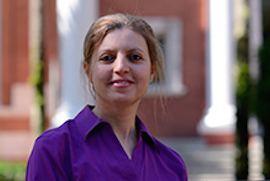
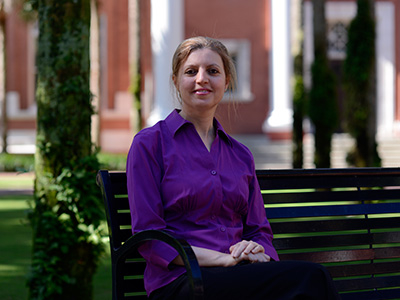 Hala ElAarag, Ph.D., associate professor of computer science, was awarded the 2015 Faculty Mentoring Award from the Mathematics and Computer Science Division of the Council on Undergraduate Research (CUR). ElAarag is the vice president and president-elect of the Consortium of Computer Sciences in College and worked as a counselor in the Mathematics and Computer Sciences Division of the Council on Undergraduate Research from 2011-2014. Currently, she serves on the technical committees for numerous international conferences.
Hala ElAarag, Ph.D., associate professor of computer science, was awarded the 2015 Faculty Mentoring Award from the Mathematics and Computer Science Division of the Council on Undergraduate Research (CUR). ElAarag is the vice president and president-elect of the Consortium of Computer Sciences in College and worked as a counselor in the Mathematics and Computer Sciences Division of the Council on Undergraduate Research from 2011-2014. Currently, she serves on the technical committees for numerous international conferences.
Dr. Jan Rychtar, chair of the award selection committee, in his explanation to ElAarag of why she was chosen to win this prestigious award, said: “This award honors faculty for their outstanding work in mentoring undergraduate students in research. You were chosen because of the success you have had in directing undergraduate research and for the impact your efforts have had on these students. We commend you for your great work in mentoring undergraduates,” Rychtar continued, “and hope that you will continue this important work in the future.”
ElAarag has mentored 28 undergraduates in research to date, and has followed three models for mentoring students giving them the chance to perform high-level research and the chance to be published in renowned journals. She gets to know each individual student and establishes which of the following three methods would best cater to their needs:
- The assistant model: in which the undergraduate student builds upon her published work or joins her ongoing projects.
- The supervisor model: in which an undergraduate initiates the idea and conducts the research independently with her supervision.
- The collaborative model: in which she and the student come up with the idea together.
Once the best method is selected, ElAarag meets with her students at least once a week, one-on-one, to discuss the student’s progress, the struggles and the goals she wants them to accomplish by the next week. ElAarag designs these goals in a way that challenges her students, but never crosses the line between challenging and frustrating.
With each new group of students she mentors, ElAarag always has the same goal in mind: “My top goal is always to teach students how to think critically, to challenge their own assumptions and the assumptions of other researchers, and to come up with their own ideas. These are skills that can serve them well throughout the wide variety of challenges in their future careers.”
ElAarag’s hard work has not gone unnoticed by her students. Andrew Roles, who took classes with ElAarag all four years of his undergraduate education said, “Dr. ElAarag has been instrumental in my success and I would not be where I am today without her.”
Another student, Sam Romano, reflecting on his research process said, “Without Dr. ElAarag’s mentoring and guidance in putting together that paper’s research and analysis, I am sure I would not have come close to accomplishing that feat.”
ElAarag not only shapes her students, but her students shape her as well: “Being a mentor is about more than teaching students, it’s also about learning from students. I have worked with many bright, engaging students and I have learned a lot from them. Each one provides fresh ideas and a fresh way of thinking that gives me new perspectives. Often they will select research topics that would never have occurred to me, and in working with them on it, I learn about something completely new.”
“First of all,” said Rosalie Richards, Ph.D., associate provost for faculty development, in congratulating ElAarag, “thank you for your commitment as a teacher-scholar, in your side-by-side work with our students. Second, congratulations on winning this national award and recognition for your work with our students!”
by Nicole Melchionda

